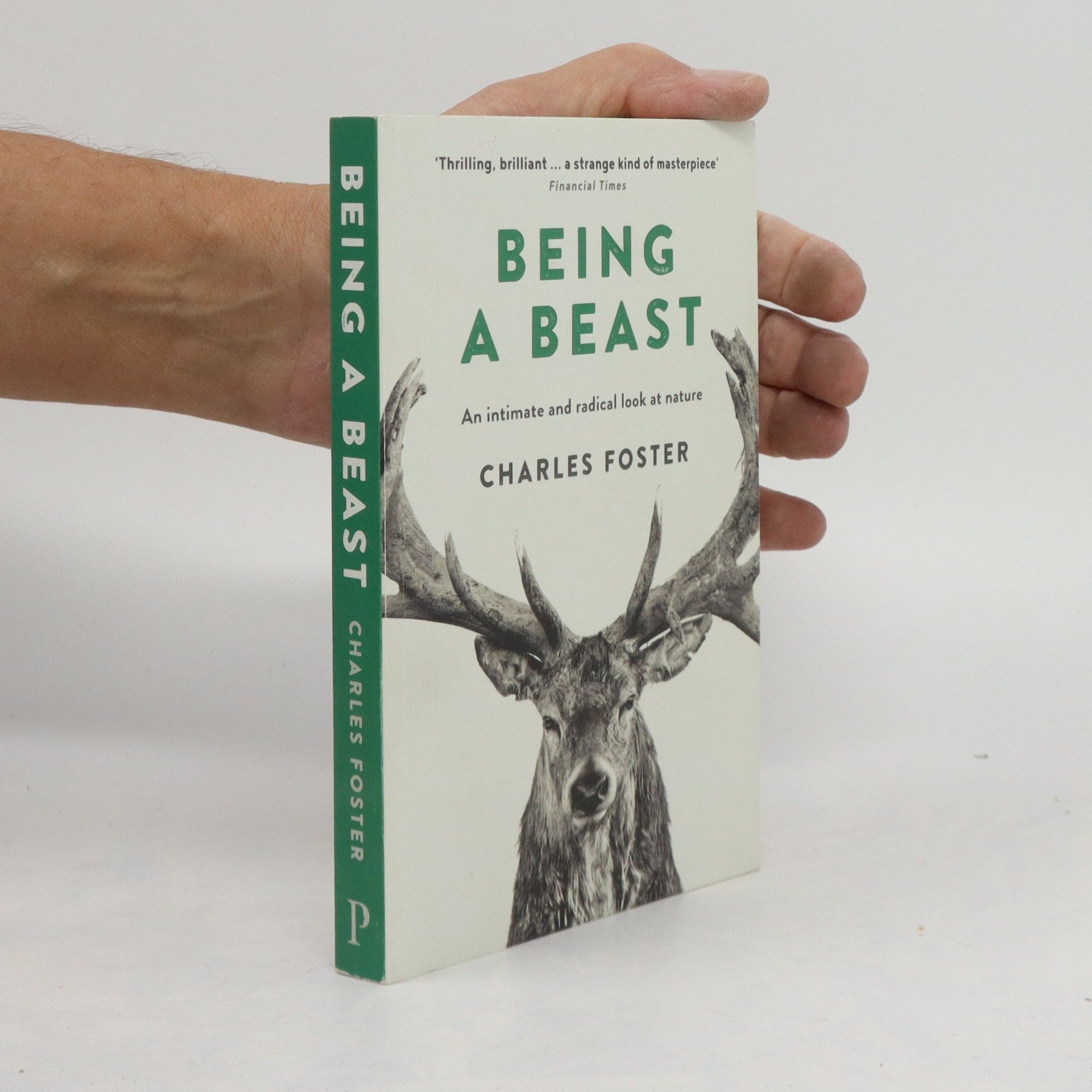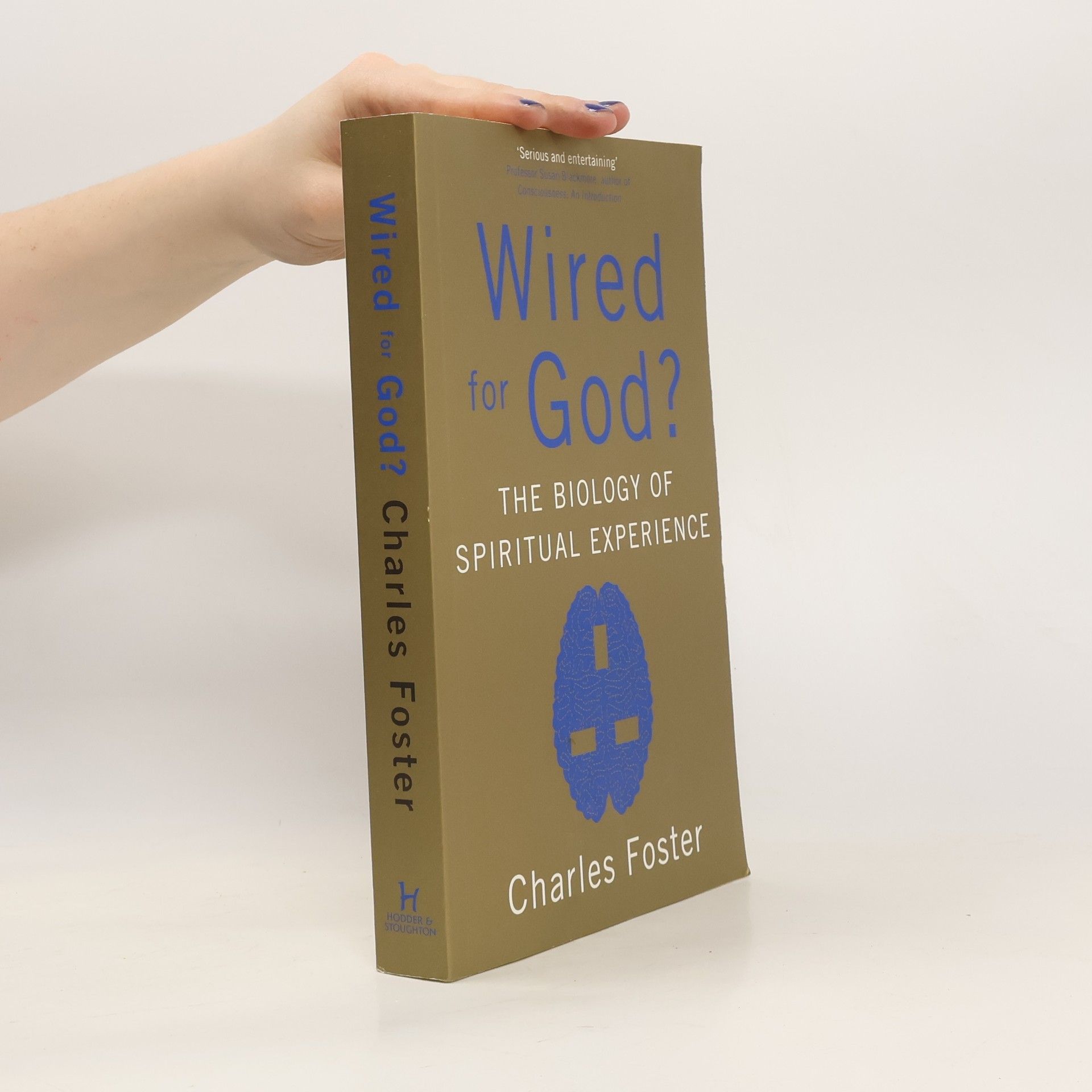A fox, grown strong on pepperoni pizza from the dustbins of the East End, dances along a railway track towards Essex, the territory of wild foxes and wilder huntsmen. An orca, mourning the loss of her mother in a valley west of Skye, knows that she must now lead the pod as matriarch. She swims again through her childhood, thinking about the old ways, the old roads, laid down thousands of years ago. But the old roads aren't so easy now. At moonrise in a West Country river, an otter floats slowly downstream. The tide, though it pushes him landwards when it exhales, seems to pull him out when it inhales. He turns on his back. He can see the stars clearly for the first time and wonders if he can swim to them. The land has never stopped waiting. It has only ever been in exile, right under our noses, waiting to confound, outrage and re-enchant.
Charles Foster Libros
Charles Foster es un autor cuyas obras abarcan un vasto terreno de temas, desde viajes y biología evolutiva hasta historia natural, antropología y filosofía. Su enfoque único para escribir se deriva de una vida rica en experiencias diversas, que combinan estudios académicos y práctica legal con expediciones extremas por todo el mundo. Esta fusión de comprensión científica y exploración aventurera permite a Foster adentrarse en mundos humanos y naturales complejos con una profundidad y perspectiva poco comunes. Los lectores apreciarán su habilidad para conectar campos aparentemente dispares, creando narrativas que son a la vez intelectualmente estimulantes y cautivadoras.






Wired for God?
- 352 páginas
- 13 horas de lectura
Human religious experiences are remarkably uniform; many can be pharmacologically induced. Recent research into the neurology of religious experience has shown that, when worshipping or praying, a certain part of the brain, apparently dormant during other activities, becomes active. What does all this mean for those of faith and those with none? In this fascinating book barrister Charles Foster takes a survey of the evidence -- from shamans to medieval mystics, to out-of-body experiences and epilepsy, via Jerusalem and middle-class Christianity -- and assesses its significance. Written in short, accessible chapters, this is a fascinating tour of religious and mystical experiences and their relation to human physiology.
A radical work of nature writing and philosophical enquiry, resituating us in our real human skins.
Being a Beast
- 256 páginas
- 9 horas de lectura
Transcendentally eccentric nature writing of the first order. Charles Foster digs deep under the skin of other animals, uncovering gems of wisdom that our usually superficial gaze will otherwise miss Hugh Warwick
Intuitively Rational: How We Think and How We Should
- 232 páginas
- 9 horas de lectura
Exploring the interplay between intuition and reasoning in ethics, this book engages with the ideas of prominent philosophers and psychologists, particularly Joshua Greene and Jonathan Haidt. It critiques the prevailing notion that intuition dominates moral judgments, as proposed by Haidt, while also challenging Greene's call for reason to take precedence in modern ethical dilemmas. By advocating a balanced approach, it offers fresh insights relevant to both philosophical and psychological discussions, making it a compelling read for those interested in moral reasoning.
Exploring the intersection of law and personal morality, this book delves into various legal domains such as criminal, tort, contract, family, and medical law. It critically analyzes whether current laws aim to enhance ethical behavior, the specific moral standards they uphold, their effectiveness, and the legitimacy of morality as a legal objective. Through this examination, the text raises important questions about the role of law in shaping individual ethics and the implications of moral enhancement technologies.
This is a radical new look at the Common Swift - a numerous but profoundly un- common bird - by Charles Foster, author of the New York Times Bestseller, Being a Beast. Foster follows the swifts throughout the world, manically, lyrically, yet scientifically.
The only biography of all the six men who flew with Guy Gibson in the RAF's most famous bomber operation, the 1943 Dambusters Raid
Charles Foster untersucht in „Die Akte Jesus“ die Ereignisse nach der Kreuzigung Jesu mit modernen kriminalistischen Methoden. Er stellt zentrale Fragen zur Auferstehung und bewertet die Glaubwürdigkeit der Augenzeugen. Sein überraschendes Urteil: Die Geschichte der leiblichen Auferstehung ist überzeugender als viele Zweifel.
